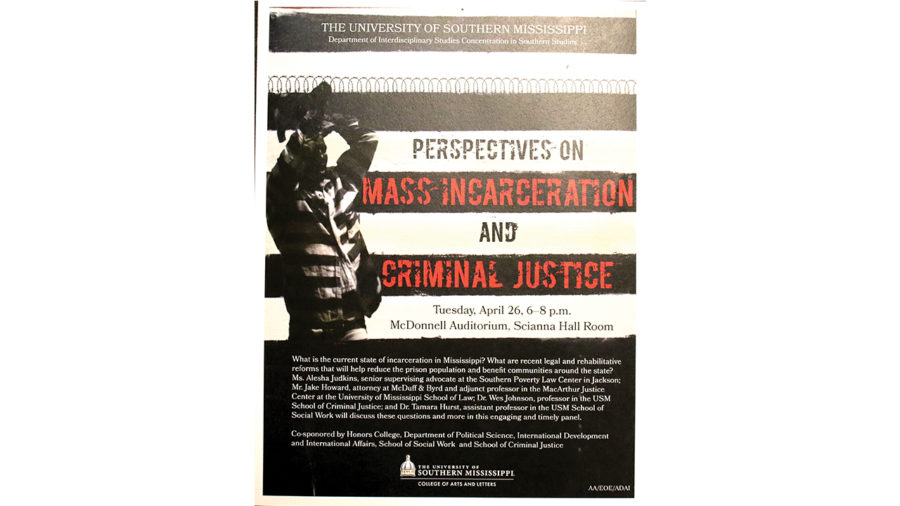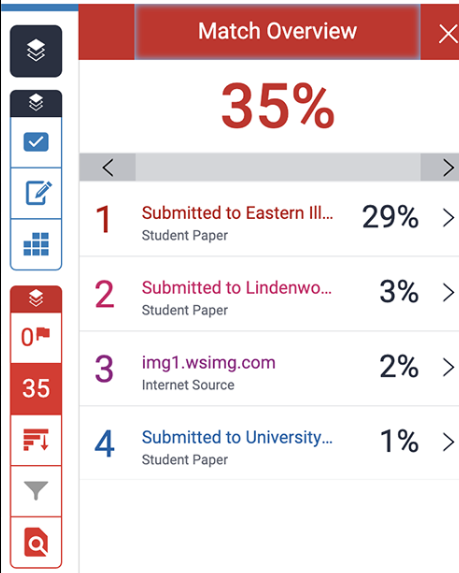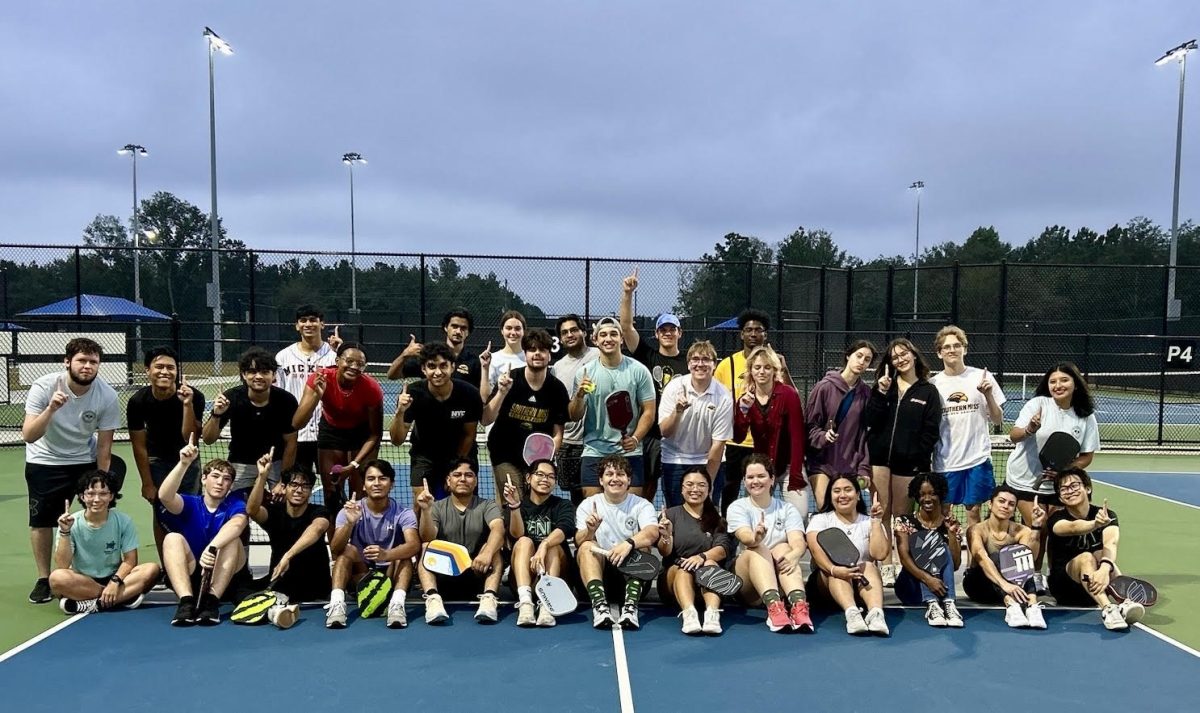The Department of Interdisciplinary Studies’ Southern studies concentration will host “Perspectives on Mass Incarceration and Criminal Justice,” a lecture and panel discussion, in Scianna Hall’s McDonnell Auditorium on April 26 at 6 p.m.
Co-sponsored by the Honors College, the Department of Political Science, the School of Social Work, the School of Criminal Justice and the College of Business, the discussion will explore current efforts to address the rise of incarceration rates in the United States from a legal, criminal justice and social work point of view.
Alesha Judkins, senior supervising advocate at the Southern Poverty Law Center in Jackson; Jake Howard, attorney at McDugg & Byrd and adjunct professor in the MacArthur Justice Center at the University of Mississippi School of Law; Wes Johnson, professor in the USM School of Criminal Justice; and Tamara Hurst, assistant professor in the USM School of Social Work are among the experts that will offer insight on the issues from their wide range of professional perspectives.
After receiving brief instruction, each panel member will address his or her answers to a variety of questions related to the state of and solution to mass incarceration in Mississippi today.
Questions for the panel and its individual members will cover a range of topics, including criminal justice and sentencing reform, the relationship between mental health and criminal justice, the privatization of prisons and strategies to reduce mass incarceration.
The audience will have the opportunity to submit questions to the panelists.
According to The Sentencing Project, a non-profit organization dedicated to research and advocacy on prison reform, the U.S. incarcerates more people than any other nation in the world.
In the U.S., about 700 out of 100,00 people are incarcerated.
Worldwide, the nation with the next highest rate is Rwanda with about 500 people per 100,000.
Among other NATO countries, Great Britain’s rate is the second highest, with about 150 people incarcerated per 100,000.
Additionally, incarceration rates in the U.S. are racially skewed. One in 3 black males, 1 in 6 Hispanic males and 1 in 17 white males are incarcerated.
“Something must be done,” said Rebecca Tuuri, coordinator for the Department of Interdisciplinary Studies’ new concentration in Southern studies.
“We really want students, faculty and community members to come and ask questions and find solutions to this problem that plagues not only those who are incarcerated, but their friends, families and communities as well.”
According to the Southern studies webpage, the concentration is designed to investigate issues unique to Mississippi and the South with the purpose “to increase students’ awareness, knowledge and critical analysis of the South as a distinct region and to teach students a variety of skills and techniques for studying the South’s unique complexities and contributions.”




























